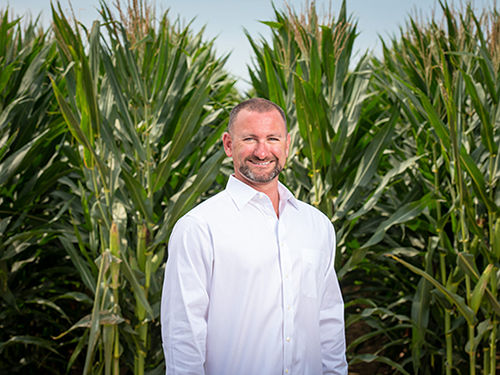
Name: Jacob Appleberry
Position: Board Member
Appointed to the Board: 2018
Did you have any exposure to farming before entering the industry?
I am a 4th generation farmer on the land we are fortunate to work since 1941. We have also traced our heritage back two generations beyond our time at our current location, which would make me a 6th generation farmer. At one time, I was lucky enough to work with my grandfather and father. Both have excellent agronomy backgrounds along with business and agronomy degrees from the University of Arkansas Fayetteville.
So, you've always wanted to be a farmer then...
Absolutely. I don't think I would do well trying to be in another part of Ag or in a completely different profession. My thoughts and opinions following historic Ag opinions too closely to be accepted well in another profession.
How did you become a farmer?
I worked at it every day I could go to the farm since I was 10 years old. I would work all summer long before I could drive. Once I could drive (whether it was legal or not) I went to the farm once I was done with school work. That carried into high school, and eventually I obtained a college degree and took extra courses to understand the basics of being a farmer.
Who is your inspiration when it comes to farming?
Being a multi-generation farmer, I could pull from so many ethical leaders in my community that were and are excellent producers
How many crops do you grow beside corn and/or grain sorghum?
I also grow soybeans and rice.
What is your favorite aspect of growing corn and/or grain sorghum?
Every day is different. When we show up, we have a plan. The challenge is the plan can be made by 7 a.m. and broken by 8 a.m. Some would consider this frustrating, and it can be at times. The fun part is figuring out the situation as quickly as possible and the day still being a fluid success. As those days add up from winter planning to spring planting and weed suppression, summer irrigation and insecticide suppression, and finally harvest when we can see the fruits of those frustrating days, it's a superb feeling to watch the combines move carrying great yields, and you know you had a hand in that.
You talked about frustrating days. What are some challenges you overcame this past season?
Better meshing data management with solid agronomic decisions. We have improved in the last four years of our agronomic data collection and analysis. This year, we are really beginning to see the fruits of our labors in this area.
What is your personal motto when it comes to success?
Never quit trying. Never freak out. Never stop thinking.
Outside of the ACGSB, are you involved in any other professional organizations?
I am vice president of the Desha County Farm Bureau, president of the Farm Bureau Wheat and Feed Grains Commodity Division , a member of the Tillar Fire Department and a Ducks Unlimited State Campaign chairman.
How would you describe the work of the ACGSB to someone, regardless of their ag background?
ACGSB decides on the direction of University research for the State. This Board attempts to make sure the producers in the State have all the tools they need in public research to make a profitable crop.
